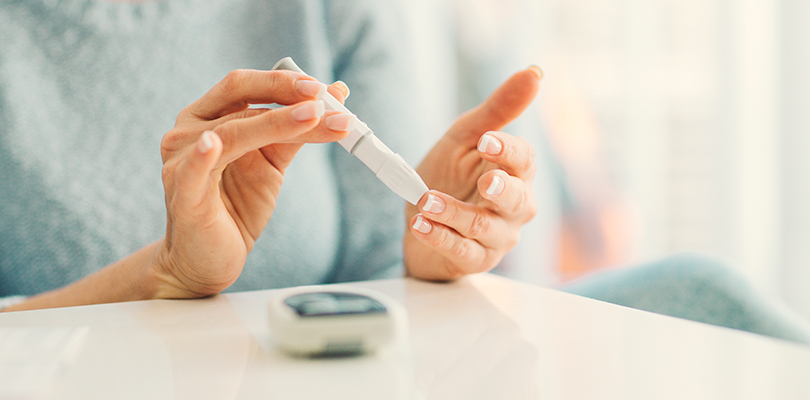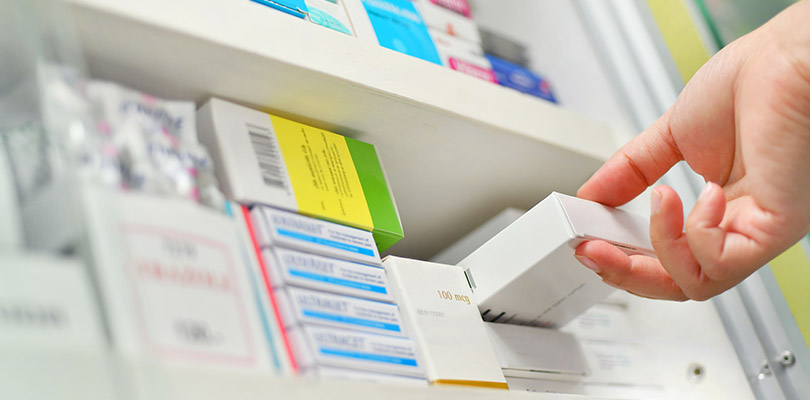Can IBS and Diabetes Be Related?
There is a time that I remember when a patient asked me, “It seems like once I was diagnosed with type-2 diabetes, I also looked to have IBS symptoms. Do you think IBS and diabetes are related?”
An excellent question, indeed. A question like this requires a little bit of research for more information.
Metformin Side Effects
As a diabetes educator, I can practically rattle off a list of Metformin’s side effects. However, the most common side effect of Metformin is diarrhea.
So, if a patient asks about IBS and diabetes, my first question is, “Are you taking Metformin?” If the answer is yes, I’ll follow this with a series of issues:
- “How long have you been taking the Metformin?”
- “What dosage are you taking?”
- “Can you tell me how you take your Metformin?”
- “Is your Metformin the extended-release version?”
- “Did the symptoms start when you started taking the Metformin?”
Often, IBS symptoms seem to start with the initiation of Metformin therapy.
In this case, if the patient is not already taking the extended-release version, I’ll ask the doctor to adjust the medication and prescribe a slow titration, decreasing the chance of having this side effect.
If IBS symptoms started with the initiation of Metformin and the patient is taking the extended-release version already, and the patient has been taking the medication for an adequate amount of time, it may be time to discontinue the use of medication and try a different prescription from a different drug class.
It is also worthwhile to explore the side effects of other diabetes medications, as other medications can also cause a gastric upset as well.
If the patient already had IBS or the symptoms don’t seem to be related to Metformin, there may be other potential causes for the experienced symptoms.
Diet and Lifestyle
Often, when a patient hears they have been diagnosed with type-2 diabetes, they earn themselves a referral to a diabetes educator where they’ll receive a series of education handouts from their doctor.
One of these handouts is inevitably about healthy eating.
The patient will take it upon themselves to change their diet considerably. By the time they come in to see the diabetes educator, they’ve lost already lost a significant amount of weight, and their recorded blood sugars may look good.
However, they are experiencing diarrhea.
If you suffer from IBS with constipation (IBS-C) and are looking for ways to manage the symptoms, these five simple lifestyle changes may help.
Why Are You Experiencing Diarrhea?
A lot of people hear the word “diabetes” and automatically assume they need to eat foods that are sugar-free or low sugar.
Yes, cutting out artificial sugar is beneficial. However, particular sugars can cause diarrhea. In some cases, sugar alcohols can cause diarrhea.
What are sugar alcohols? According to the Mayo Clinic, sugar alcohols occur naturally in certain foods and are often manufactured as an additive. On the food labels, the names of the additives go by:
- Xylitol
- Tagatose
- Trehalose
For some people, sugar alcohol doesn’t cause any symptoms or issues. While for others, sugar alcohols can have a laxative effect. Some food labels may even carry this warning.
The IBS and Diabetes Link
So if we’ve eliminated medications and diet, is it an accurate IBS diagnosis?
There are times when IBS and diabetes do seem to be related.
According to Joslin Diabetes Center, "Irritable bowel syndrome (IBS) is a fairly common ailment among people with diabetes. More than 50 percent of people with diabetes complain of some gastrointestinal symptoms."
James D. Wolosin, M.D., FACP, and Steven V. Edelman, M.D., discuss "diabetic diarrhea" in the medical journal, Clinical Diabetes. Per their estimates, as many as 75% of people will have some GI symptoms, and 22% will have frequent diarrhea.
Persistent diarrhea is typically unexplained;
- It can occur due to problems in the small bowel or the colon and may be caused by autonomic neuropathy in the bowels, which leads to abnormal motility and secretion of fluids in the intestines.
- It could simply be intestinal problems that occur and typically cause IBS are not unique to diabetes and could be purely coincidental.
Treatment for IBS and Diabetes
Treatment of the IBS or the IBS symptoms is tailored to the cause:
- Is it medication-related? A discussion about medication adjustment or switch to a different medication.
- Do sugar alcohols cause it? A referral request for a registered dietitian (RD,) for the patient to discuss healthy eating for blood sugar control, without sugar alcohols.
- Is it IBS? Antidiarrheal medications may be prescribed by your physician, as may be a fiber supplement and an increase in fiber intake. In rare cases for severe IBS, prescription medications can be prescribed to decrease bowel spasms, thus reducing bowel frequency.
At the end of the day, there are numerous medications that can help ease your IBS symptoms.







